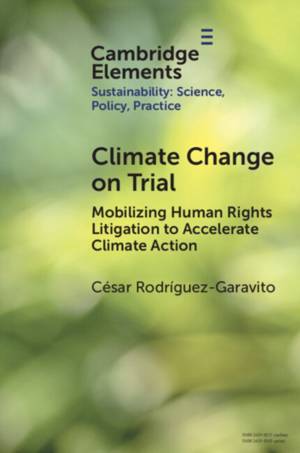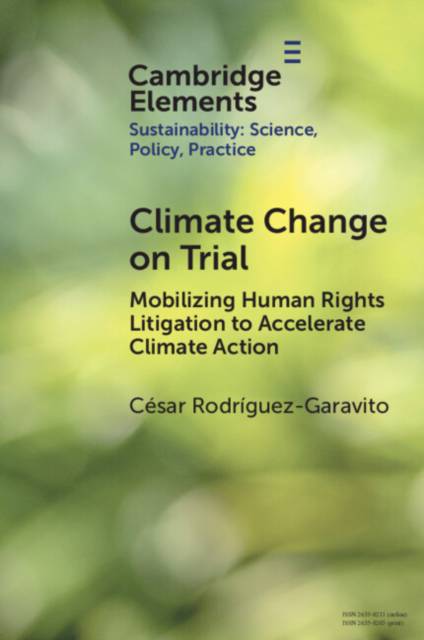
Bedankt voor het vertrouwen het afgelopen jaar! Om jou te bedanken bieden we GRATIS verzending (in België) aan op alles gedurende de hele maand januari.
- Afhalen na 1 uur in een winkel met voorraad
- In januari gratis thuislevering in België
- Ruim aanbod met 7 miljoen producten
Bedankt voor het vertrouwen het afgelopen jaar! Om jou te bedanken bieden we GRATIS verzending (in België) aan op alles gedurende de hele maand januari.
- Afhalen na 1 uur in een winkel met voorraad
- In januari gratis thuislevering in België
- Ruim aanbod met 7 miljoen producten
Zoeken
Climate Change on Trial
Mobilizing Human Rights Litigation to Accelerate Climate Action
César Rodríguez-Garavito
€ 31,95
+ 63 punten
Uitvoering
Omschrijving
This Element tells the twenty-year socio-legal story of human rights-based climate change litigation. Based on an original database of the totality of rights-based climate change (RCC) lawsuits around the world as well as interviews with leading actors and participant observation in the field, the Element explains the rise and global diffusion of RCC litigation. It combines insights from global governance, international law, climate policy, human rights, and legal mobilization theory in order to offer a socio-legal account of the actors, strategies, and norms that have emerged at the intersection of human rights and climate governance. By proposing a broad understanding of the impacts of legal mobilization that includes direct and indirect, material and symbolic effects, it documents the contributions and shortcomings of human rights litigation in addressing the climate emergency. This title is also available as open access on Cambridge Core.
Specificaties
Betrokkenen
- Auteur(s):
- Uitgeverij:
Inhoud
- Aantal bladzijden:
- 128
- Taal:
- Engels
- Reeks:
Eigenschappen
- Productcode (EAN):
- 9781009420525
- Verschijningsdatum:
- 26/06/2025
- Uitvoering:
- Paperback
- Formaat:
- Trade paperback (VS)
- Afmetingen:
- 152 mm x 229 mm
- Gewicht:
- 181 g

Alleen bij Standaard Boekhandel
+ 63 punten op je klantenkaart van Standaard Boekhandel
Beoordelingen
We publiceren alleen reviews die voldoen aan de voorwaarden voor reviews. Bekijk onze voorwaarden voor reviews.









